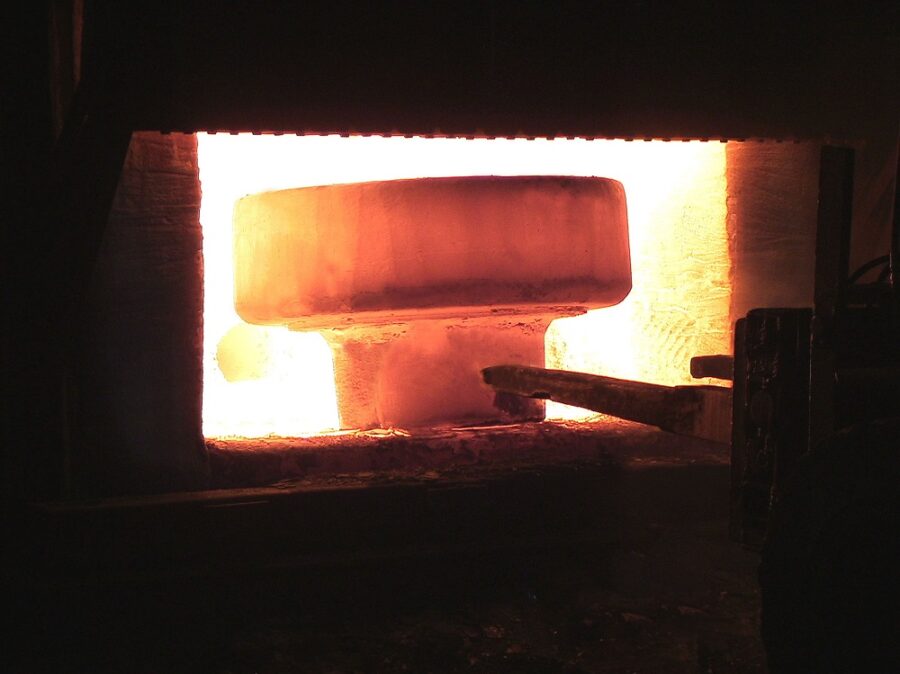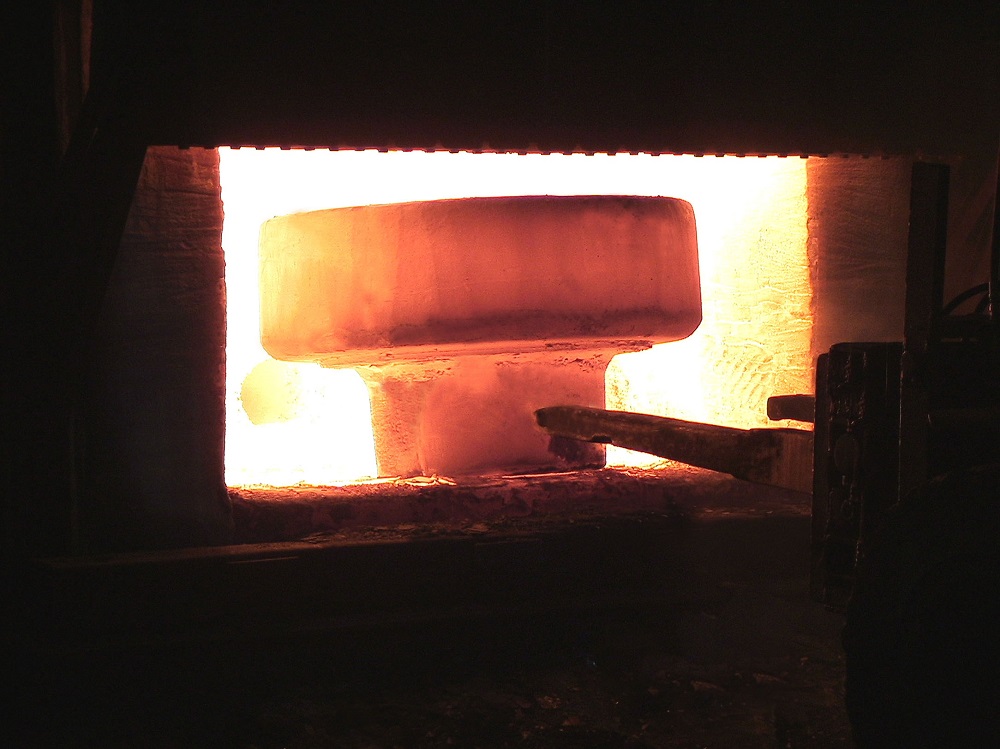
What Are Some of the Types of Forging Processes Used by Forging Manufacturers to Produce a Flange?
In general, forging manufacturers can choose from four types of forging processes to produce a flange:
- Cold Forging
- Closed Die Block Forging (AKA Impression Die Forging)
- Open Die Block Forging
- Seamless Rolled Ring Forging
Cold Forging
Where most forging processes involve superheating the metal to temperatures as high as 2300 degrees Fahrenheit, cold forging takes place at much lower temperatures, some heat the metal a couple of hundred degrees while others shape the metal at room temperature. Many cold forging processes are the same as custom metal stamping services such as bending, coining, and punching. Other cold forging processes such as cold drawing, cold heading, and thread rolling use different methods and equipment to “mold” the metal into desired shapes such as rods, wire, or bars. Cold forging works best on “softer” metals such as aluminum alloys, brass, bronze, copper, lower-alloy carbon steel, and the 300 to 400 series of stainless steel.
Another process, warm metal extrusion, has been used to produce center flanges and rectangular-shaped parts. Warm forging is used more often when using higher grades of carbon steel.
Cold forging forces a chemically lubricated metal bar through a closed die under extreme pressure pushing the metal in the direction of the force. This cold forging process is known as forward extrusion. Forward extrusion is used in situations where the metal bar’s diameter needs to be reduced and the length of that bar needs to be increased. The opposite process, backward extrusion, is used to create hollow parts.
Closed Die Block Forging
Both closed die block and open die block forging were covered extensively in the blog post: What is Industrial Block Forging so we won’t cover this in a great deal of detail again here. Closed die block forging is when hot metal is placed in a mold-like metal die that surrounds that metal and then is hammered into the shape of that die with tremendous force.
Open Die Block Forging
Open die block forging uses a similar process as closed die block forging, except that the mold does not completely surround the heated block of metal, and is typically used for flat, rounded or curved shapes.
Seamless Rolled Ring Forging
This type of forging starts by superheating a thick, rounded slab of metal and then punching a hole through the middle of it (like a giant metal donut). Then the metal is pounded, rolled, and squeezed into the needed shape. This shape can range from a thicker, more cylindrical shape, to a flatter, washer-like shape.
Forged components created with this process are extraordinarily strong and pressure-resistant, making them ideal for high-pressure use.
FCI’s flanges are manufactured primarily using the Seamless Rolled Ring Forging process. This produces an extraordinarily strong and pressure-resistant flanges, making them ideal for high pressure and high temperature applications. For more information, please call us at (281) 441-4088 or contact us online to get a quote today.

